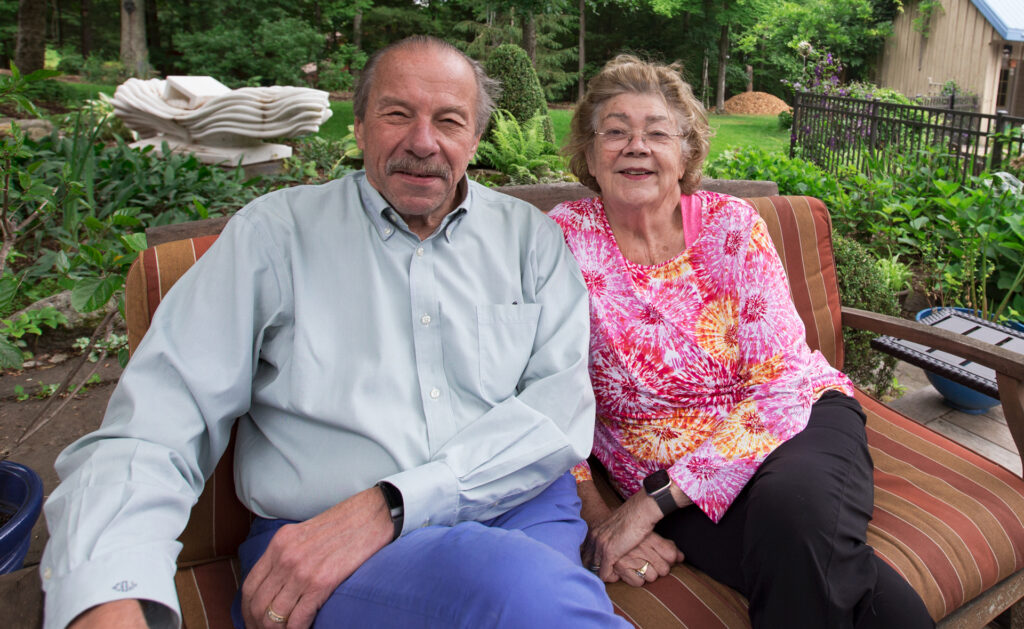My first memory of engaging directly with Chet was at an Ellen Sinopoli Gala Event. That particular year it was located on the Russell Sage Campus in Troy at the Bush Memorial Hall. Making a bold play to be dapper I had chosen a bow tie, the kind you have to actually tie yourself. Having never done this and distracted by the event that I was in fact running that evening for Ellen, I had neglected to figure out just how to do that. Guests were arriving and my stress level was rising.
But then, flanked by his charming wife, I spotted a dapper man in a seer sucker blazer and perfectly appointed bow tie entering the room. Swallowing my pride I approached sheepishly asking for advice. With a flashed smile and a chuckle the kind gentleman put his arms around me and adeptly tied the perfect knot.
And this was how I came to meet regional benefactor Chet Opalka.
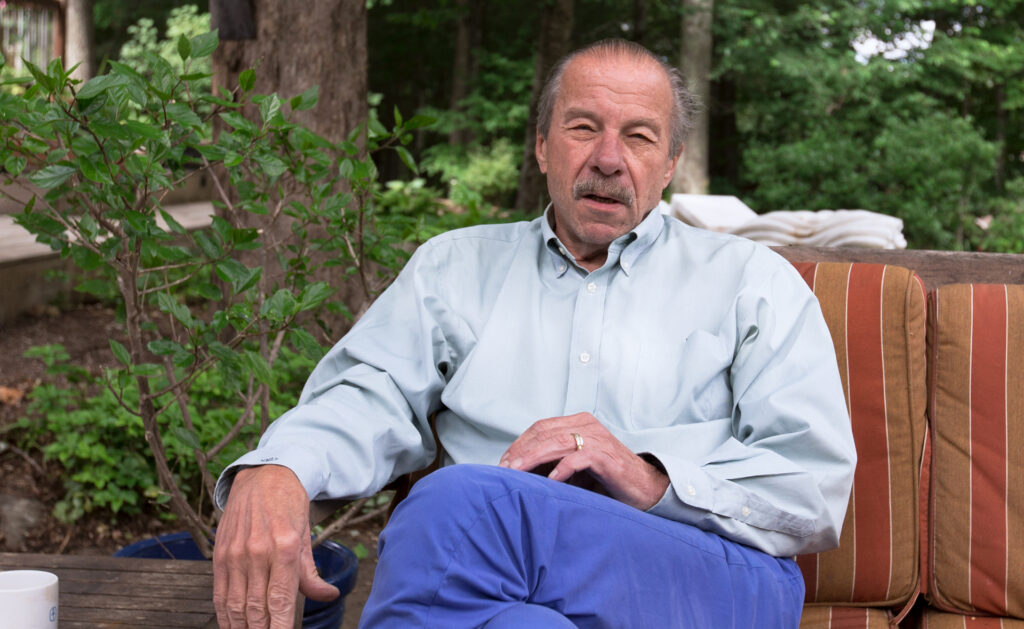
It was a warm and sunny afternoon when I joined Chet and Karen in the Japanese style garden at their home in Rensselear county. I was initially greeted by two playful pups that were demanding of a couple of pets on the head for the cost of admission. As conversations with Chet usually are, it meandered, jumping between past, present and future. A winding narrative that continued to hone in on a couple of overarching themes that helped to define in my mind the focus and direction that has been and continues to be a life philosophy, a guiding narrative for his philanthropic endeavors – open minded collaborative thinking, generosity, risk taking and a belief that people and their ideas and passions can create value in our regional community and far beyond.
Chet the man is curious, vivacious and at times renegade. A creatively improvisational soul that looks to find cohesive connectivity in all things around him. For the last 20 years he has found ways to do that by working through the passion and visions of others in the community. Whether it be in private business enterprise (Chet was an early investor in Starfire Systems and Plug Power) or mission oriented arts and cultural organizations. A true angel investor, his philosophy is to invest in many and see how they develop over time. Some will fail, its inevitable. Chet is ok with that. Not every business, organization or idea will be fully actionable or sustainable. His interest is in the giving someone a chance to realize their dreams, to pursue their passion.
“We try to support as much as possible. Small (such as the Sand Lake Center for the Arts) and large (SPAC) because they all add quality of life to the community. We support as many as we can, the best we can. I subscribe to the idea that…what good is leaving a part of your estate to an organization after your gone? Do you get any enjoyment out of that, do you get to see the value you created? You don’t even know if they are going to survive. I prefer to do it while I am living, to see what value has been created. You can leave money to your kids, we did set up trusts for them. They don’t need anymore money. I prefer to give money to organizations or companies, to give them a chance to grow. Give them the horsepower to be successful. Angel investment is a version of philanthropy, betting on companies not to make money but to help them to be successful. If I make money it gives me more money to give away. That’s the only reason for me. That’s why I want the market to do well, so I can make more money to give away. That doesn’t suck, right? Enough is enough, how much do you need to be happy? What else do I need? I can go anywhere I want to go, I can do anything I want to do. I have enough money. What more do I need? I actually prefer to cook at home. I could eat out every night, I could have a personal chef but what fun would that be?“
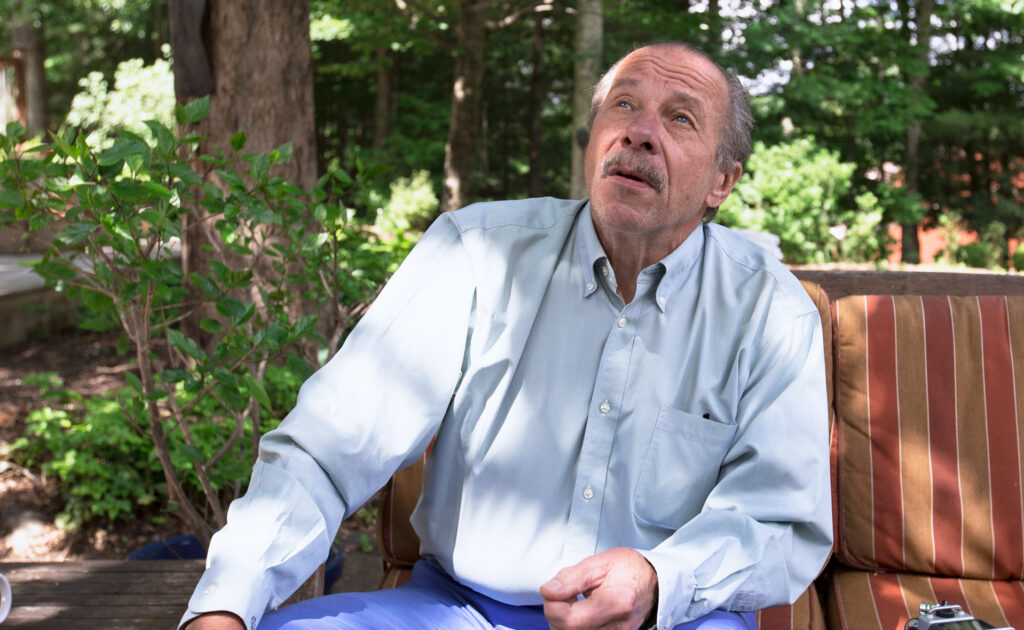
After two decades, the desire is still stronger than ever to have an impact. His desire for direct involvement though, is evolving.
“When being in the limelight was new, it was exciting. As time goes on though, now that Karen and I are 74 years old, it is not as exciting. I understand why folks I knew doing this 20 years ago dropped out of the limelight when they were hitting our age, it gets tiring.“
As such, Chet prefers to provide financial leverage and opportunity to those individuals and organizations he feels are worthy but has little interest in the day to day involvement that directs those funds. Preferring to give his beneficiaries free reign to leverage his financial support. We did talk a lot about financial sustainability and how we need to move forward in the creative / cultural sector in a post covid world.
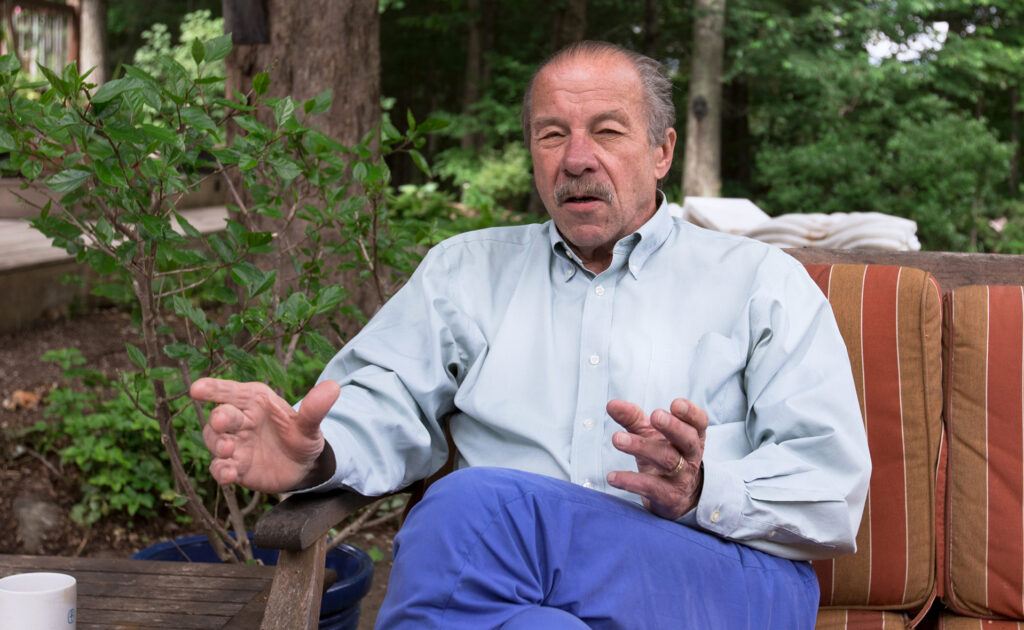
“Organizations should be looking at all aspects of what they do and understand how they can be monetized, become financially self sustaining.” When pressed about how we can reconcile that approach specifically with a mission oriented organization he said, “With no financial sustainability, there is no accomplishment of mission.” This was particularly prescient to me as my prime motivation for leaving the Real Estate industry about 10 years ago was a motivation to address this very issue. I had seen through volunteerism that many organizations that I was working with were excellent at mission but had a very poor understanding of the financial or accounting side of the ‘business.’ As we moved along in that aspect we landed on an area that is increasingly near and dear to the mission of ACE! – education. Teaching our creative and mission based organizations how to be more financially savvy.
“They don’t think about it. So many of us are altruistic, people (artists / organizations) are like that with their art and mission. But everybody needs to understand finance. One of the weaknesses of our education system is that we don’t teach people practical things. The only thing we seem to teach kids in school is how to memorize stuff, which was always a problem for me because I am a hands on learner. I don’t have the attention span. That’s how I learned chemistry. By seeing what others did and going from there.”
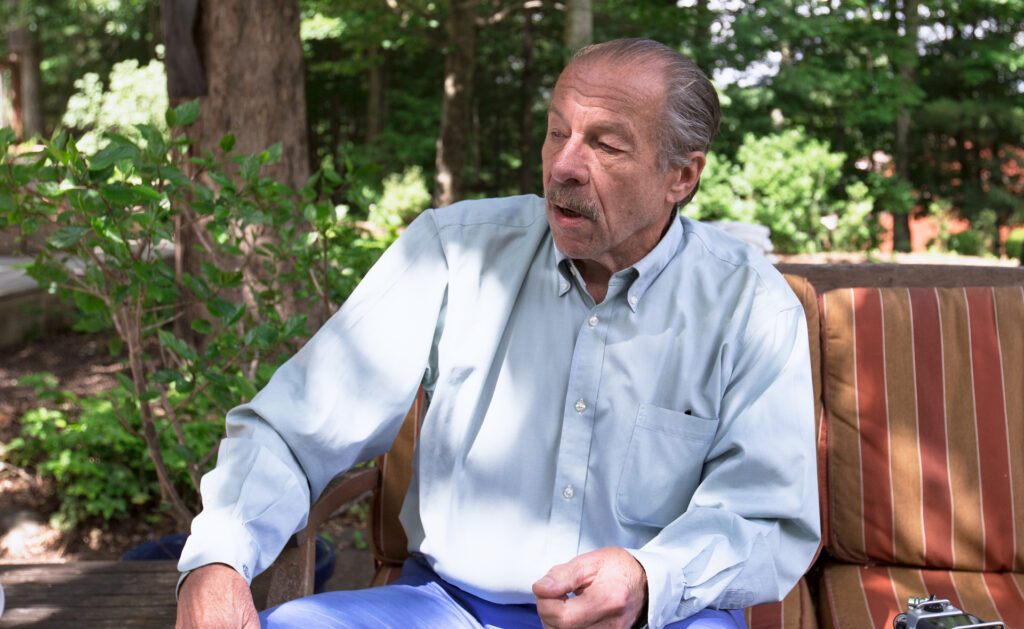
This creative hands on approach turned out quite well for Chet when he was a young chemist at Sterling Drug where he gained his first patent for a drug that later became a foundation for a new series of drugs designed to address congestive heart failure. When at first he was left off the patent that was filed, his willingness to challenge a hierarchical system payed dividends. He went over his direct boss’ head to have the situation rectified. He had been assigned to work on a series of antibiotics. When he noticed an interesting structural formula that he felt may have different and beneficial characteristics, he set aside his own time to pursue it and created a tidy piece of intellectual property for his employer. To that end he said…
“What I did could be considered insubordination because I didn’t do what I was told but that’s the way my mind works.“
I was also really interested in Chet’s perspective on how we could get more successful regional individuals and institutions in the private sector to consider following a similar philanthropic path to create a new generation of support for arts and cultural in our region. Here he got a bit psychological.
“By exposing our biz leaders more to arts and culture. They tend to focus on their businesses, they are overachievers. They don’t spend as much leisure time enjoying arts and culture and the outdoors necessarily. The people that work for them do though.“
What attracts young creative talent to a region is more than just a paycheck. It has to do with the quality of life options, the placemaking advantages that a region has to offer. Again, the very areas of the creative economy that were identified in the Mt. Auburn Associates ‘CAPTIVATE‘ report commissioned by the Community Foundation for the Greater Capital Region and Center for Economic Growth for the stakeholders of ACE! close to its inception.
But then Chet drilled deeper…
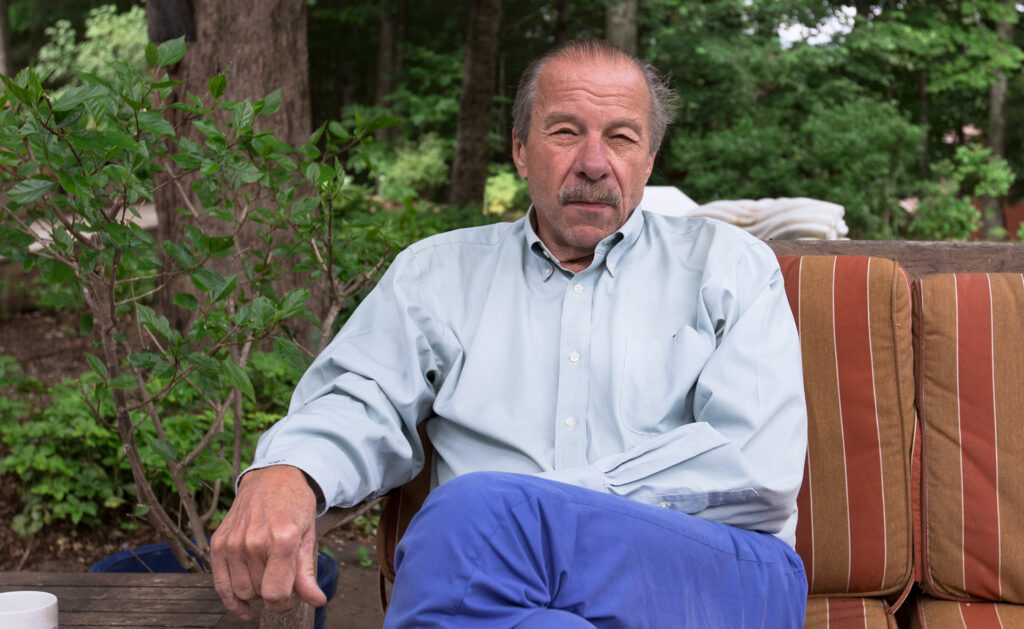
“Our recruitment problem is that we have not made a name for ourselves as a cultural mecca of any kind. We are a secret externally and internally. To attract the kinds of young people who are in front edge creative careers we need to have a variety of things to do. What are they going to do when they are not working? Instead they go to NYC, Boston….In reality though, we are like the boroughs of Manhattan. Each community has its own character. What makes us different from Manhattan is that we look at ourselves as individual identities, we have not combined them. We are in fact neighborhoods – the Schenectady neighborhood, the Albany neighborhood, the Saratoga neighborhood.“
“We have a self esteem issue. There is no pride. We consider ourselves second hand citizens. Years ago in recruiting the big pitch was that we are 2.5 hours from NYC and 3 hours from Boston. It’s a Smallbany thing. We want to flip that script. Tell NYC folks that they are only 2.5 hours from Albany! Boston folks, 3 hours from Albany! I do love the Smallbany idea in that its easy to get to know people in our area. It’s about scale. It’s a benefit.“
Though I personally see some of that changing in the hearts and minds of young professionals in our area, this rang pretty true to me from an ACE! perspective. A few years ago, ACE! under the tenure of previous executive director Maureen Sager and in conjunction with several stakeholders including the Workforce Development Institute, held a series of round table discussions across the Capital District about how we could continue to attract bright creative individuals and companies to our region. This narrative is one that has been in the mouths and minds of many looking to create a destination space place for the Capital Region.
“The whole is greater than the sum of its parts, why don’t we understand that? Why are we so self centered and insecure that we can’t share with others for fear of them taking something from us? If it happens, so what? Personally, I don’t care if people use my ideas. Imitation is the greatest form of flattery. Who needs credit? I don’t care if I get credit for it or not. My ego is not so large as it needs credit for everything…unless its a patent!“
